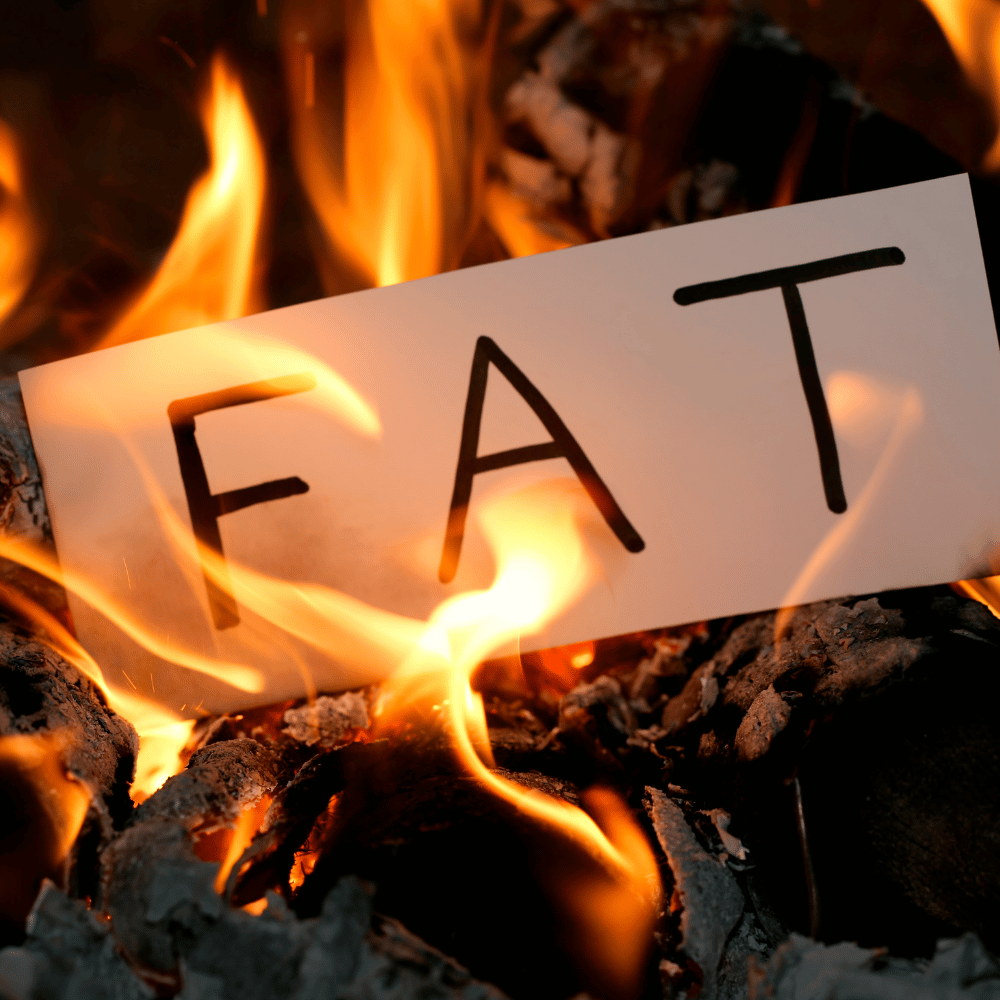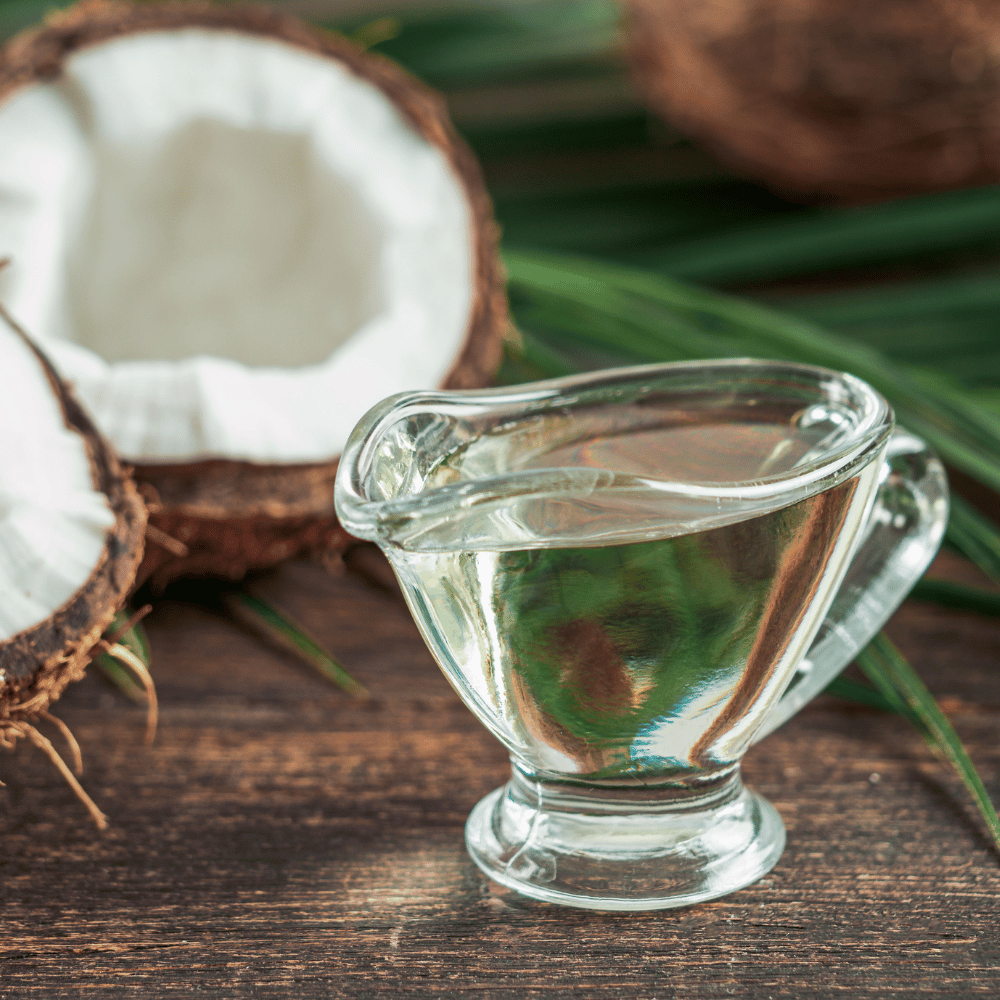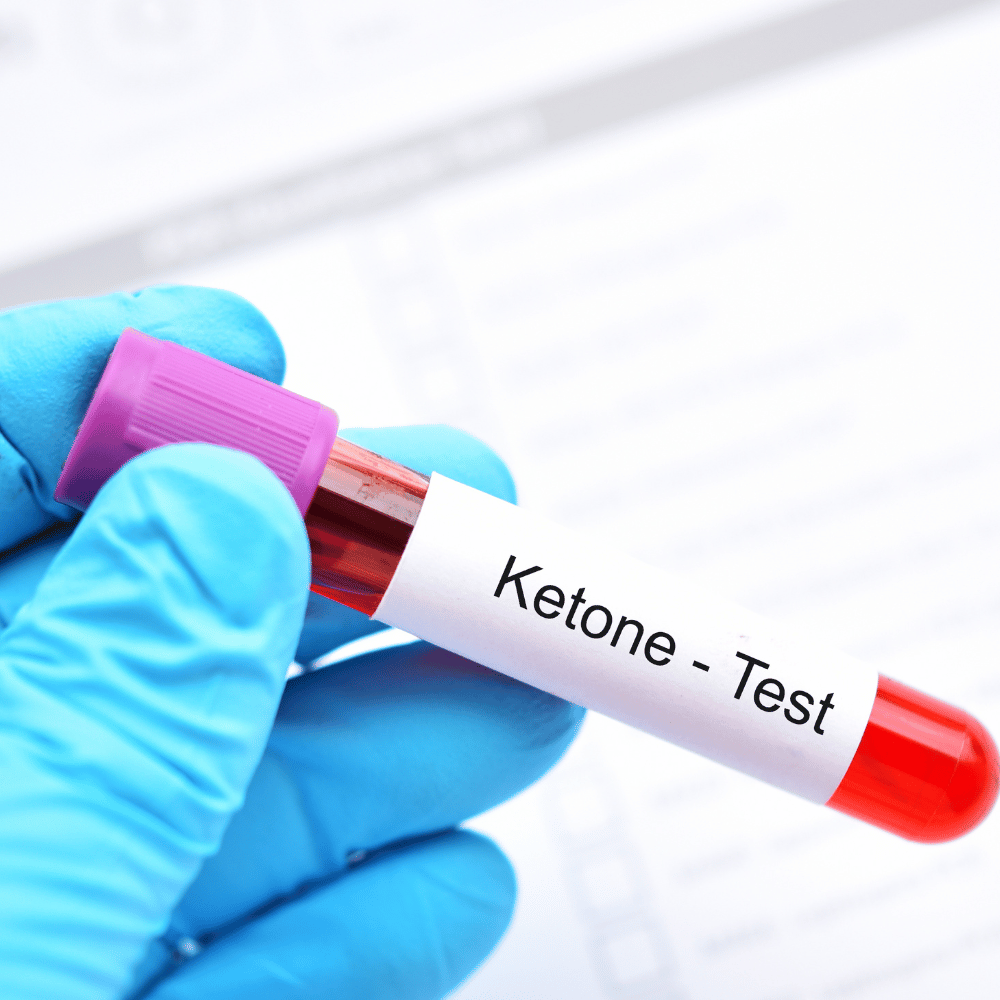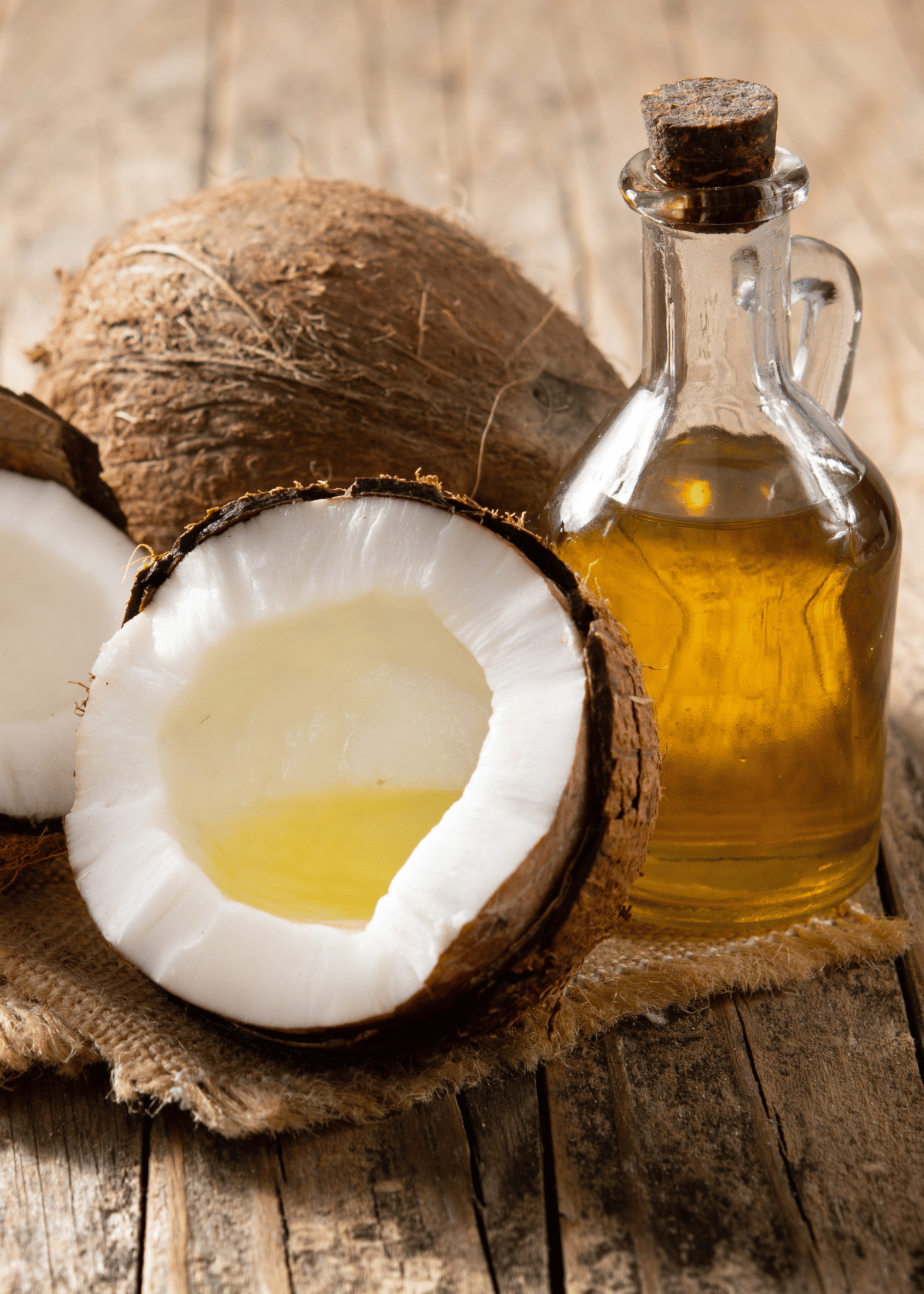Intermittent fasting is becoming increasingly popular for those looking to lose weight, as well as for athletes wanting to improve their performance. But does adding coconut oil during your fasting period break ketosis or otherwise interfere with your intermittent fasting plan? Let’s take a look at the pros and cons of consuming coconut oil while you’re fasting.



What Is Coconut Oil?
Coconut oil is a highly versatile and nutritious oil that can be used for cooking, baking, skincare, haircare, and even as a supplement in many diets. It has the distinction of being composed mainly of medium-chain fatty acids (MCFAs) which have been shown to have numerous health benefits. The most important benefit is that these MCFAs are easier for the body to process than other saturated fats like lard or butter.
Most people would recognize coconut oil from its culinary use; there are thousands of recipes that include it due to its mild yet fragrant flavor which makes it ideal for baking and frying foods without overpowering them with an intense taste; but what isn't as well known is how — when taken internally - it helps increase our metabolic rate while digesting and burning more calories! This makes it perfect for anyone who wants to lose weight without having to resort to extreme dieting or over-exercising regimes.
Furthermore, coconut oil contains powerful fatty acids called Lauric Acid which help protect the human body against bacteria (when applied topically on the skin) and viruses thus improving our immune systems function. It's also an incredibly popular ingredient in Bulletproof Coffee where organic grass fed butter, MCTs (Medium Chain Triglycerides) from Coconut Oil combine with high grade caffeinated black coffee providing sustained energy whilst breaking ketosis throughout the entire day.



How Does Ketosis Work?
Ketosis is an important metabolic process that the body uses to create energy, and when healthy fats like MCTs (medium chain triglycerides) are incorporated into the diet, it can be beneficial in several ways.
MCTs are a type of saturated fatty acid found primarily in coconut oil that is broken down quickly and absorbed easily into your bloodstream. This allows them to supply instant energy without spiking your blood sugar levels like other types of fats or carbohydrates would do.
Your body will convert the MCTs from coconut oil directly into ketones - which form when fat is used as a source of fuel instead of carbs for energy. This process puts your body in a state called "Ketosis" where it begins to burn fat stores more efficiently for energy instead of relying on glucose from carbs as its primary source.
Consuming MCTs helps increase ketone levels faster compared to traditional sources like butter or olive oil - making them especially effective for those following a low-carbohydrate/ketogenic diet who want to reach ketosis more quickly and maintain more consistent levels. It's important to note that while consuming too many calories can prevent you from entering ketosis altogether, obtaining enough healthy fatty acids through the consumption of high-quality sources like medium chain triglyceride oil can support this process regardless of how many calories you consume overall.
Overall, incorporating healthy fats such as MCT oils derived from coconuts can help successfully support weight loss efforts by increasing satiety after meals and providing fuel during exercise while also helping maintain adequate ketone levels necessary to enter deep states of Ketosis with potentially greater results long term.



Drawbacks of Consuming Coconut Oil While Fasting?
One possible drawback of consuming coconut oil during fasting is that it may cause digestive discomfort. Since coconut oil is quite high in fat content, consuming too much can lead to abdominal bloating and discomfort; this could make the entire fasting process more unpleasant than it needs to be. Additionally, if you consume large amounts of saturated fats - like those found in coconut oil - during calorie restriction periods such as intermittent or time-restricted fasting, your body may be unable to properly digest them, leading to gastrointestinal distress.
Another possible issue when consuming coconut oil while fasting is that you run the risk of slowing down your metabolism and impacting your body’s natural processes due to calories present from heavily fatty foods like avocado or nuts - though these vary according to each individual's metabolic rate.
Some studies suggest that if you consume over 500 calories after 8-12 hours without food (i.e., breakfast), then this can mess with the way our bodies release hormones related to weight control and energy regulation which could hurt our metabolisms overall. That being said, for some individuals eating lower amounts of food (say under 300 calories) will not interfere with their metabolism so long as they aren't overconsuming throughout the day or drinking coffee late into their fasted period which can spike insulin levels and further slow down fat burning mechanisms; this again varies depending on individual metabolic demands however so one should look out for any signs that indicate a decrease rather than increase in energy levels after meals taken within fasted state windows.
Finally, when deciding whether or not adding coconut oil while fasting is right for you, make sure you take into account other dietary decisions as well alongside a healthy diet rich with fresh fruits and vegetables, reducing unhealthy carbohydrates like sugar, processed foods, junk food, etc will lead far better results than relying solely on an isolated ingredient like coconut oil.
Does Adding Coconut Oil Break Your Fast?
In general, consuming small amounts of healthy fats like MCTs won’t break a fast in terms of interfering with ketosis or any other metabolic processes that occur during a fast. However, it will technically break the rules if you are trying to adhere strictly to an “eat nothing” approach—but it won’t stop you from experiencing many of the health benefits associated with fasting, such as improved insulin sensitivity, better focus, and increased energy levels.
Additionally, consuming small amounts of MCTs might even help extend your fast by keeping hunger pangs at bay for longer periods. However, it is important to note that MCTs do contain calories; one tablespoon contains about 130 calories so it is not advisable to consume large quantities during a fast if weight loss is your goal.
How Many Calories Can I Consume When Fasting?
It depends on how long you plan on fasting; typically it is advised that women consume no more than 300-400 calories per day while men should limit themselves to 500-600 calories per day when engaging in intermittent fasting. So if you choose to add coconut oil during your fast, make sure to stick within these limits so that you don't negate any potential weight loss benefits associated with fasting. Additionally, if you decide to drink bulletproof coffee (coffee with added butter or MCT oil) be aware that this beverage typically contains anywhere from 200-500 calories depending on how much butter/oil is added—so make sure not to exceed the recommended caloric intake during your fast if weight loss is your goal!
Summary: Does Coconut Oil Break Ketosis?
Adding small amounts of coconut oil during intermittent fasting can provide energy and satiety without breaking ketosis or otherwise interfering with the overall health benefits associated with fasting. However, it should be noted that adding too much coconut oil can increase calorie intake beyond recommended levels so make sure not to overdo it! With proper moderation and mindful consumption, adding small amounts of coconut oil into your diet can actually help increase satiation while allowing you to enjoy all the benefits associated with intermittent fasting!
Related Pages:
- Picking The Best Coffee Creamer for Intermittent Fasting
- Choosing The Best Coffee Creamer For Weight Loss
- The Case for Healthy Coffee Creamer
- Does Oat Milk Break a Fast?
- Does Stevia Break a Fast?
- Does Coffee with Creamer Break a Fast?
- Can You Drink Coconut Water While Fasting?
- What's Difference between Dirty Fasting vs Clean Fasting?
- Does Coffee with Cream Break a Fast?
- Does Truvia Break a Fast?
- Does Collagen Break a Fast?
- Intermittent Fasting for Night Shift Workers: The Lowdown
- What is Intermittent Fasting 20:4?
- The Benefits of Carb Cycling and Intermittent Fasting
- Does Chewing Gum Break your Intermittent Fast if it's Sugarfree?
- Can You Drink Fiber During Intermittent Fasting?







